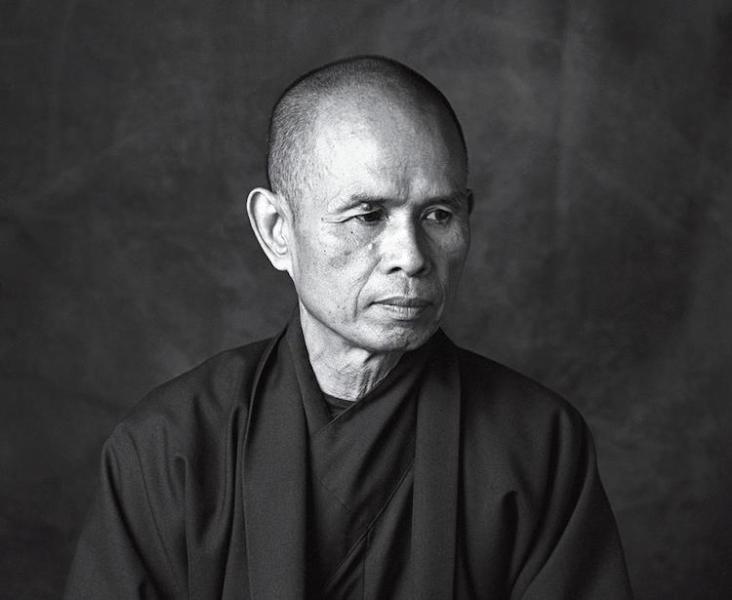
Thich Nhat Hanh. Photo by Dana Gluckstein.
It was a mere five years ago that words like Covid and Paxlovid weren't part of our lexicon. Nor were phrases like “atmospheric river,” "polar vortex" or "bomb cyclone."
Five years ago, we couldn't have anticipated war in Ukraine, whose major city names we didn’t know or have only recently (and abashedly) discovered we'd been mispronouncing.
Did the depths of political dysfunction here in America, the surge of authoritarianism elsewhere internationally, or the possibility of another World War even enter your consciousness five years ago?
In today’s world, just reading the daily news can bring a gasp of surprise because of the violence that seems inherent in some of our fellow human beings; and this is before we seniors may glance at the obituary page and perhaps be shocked by those we have lost. And our own health and durability has begun to wane in ways that may not have been expected.
Not only were we not good fortune tellers five years ago, but we assuredly are not now either. How much do any of us want to bet on what condition our world will be in in another five years?
The best strategy for any of us is to focus on living in the moment, something we do have a modicum of control over, and not to worry excessively about the future, which is beyond our control. We should be keeping our minds alert and our bodies fit to the degree that we can control those aspects of who we are. Get the medical care we need, practice gratitude, keep our minds engaged with new learning, and maintain connections with old friends and make new ones as well.
The famous late Buddhist Monk Thich Nhat Hanh has articulated many brilliant insights, including:
- “Fear keeps us focused on the past or worried about the future”.
- “There is no way to happiness—happiness is the way!”
- “People sacrifice the present for the future. But life is available only in the present. That is why we should walk in such a way that every step can bring us to the here and now.”
So, simply said, by being optimistic and living in the moment, it is more likely that happiness will follow. This is easier said than done, but that’s the prescription that would work best for most of us. Fear, anxiety, and apprehension are not so easy to contain, but psychological strategies to counter them are possible as indicated above.
Maybe these past five years have taught us the importance of developing these strategies so that five years from now we will have established greater psychological resilience and durability. That could make living in the present in today’s world more joyful and satisfying to the greatest degree possible, regardless of the unpredictable realities that will arise as the future unfurls.
Hugh Winig, M.D., is a retired psychiatrist and a longtime OLLI @Berkeley member and volunteer